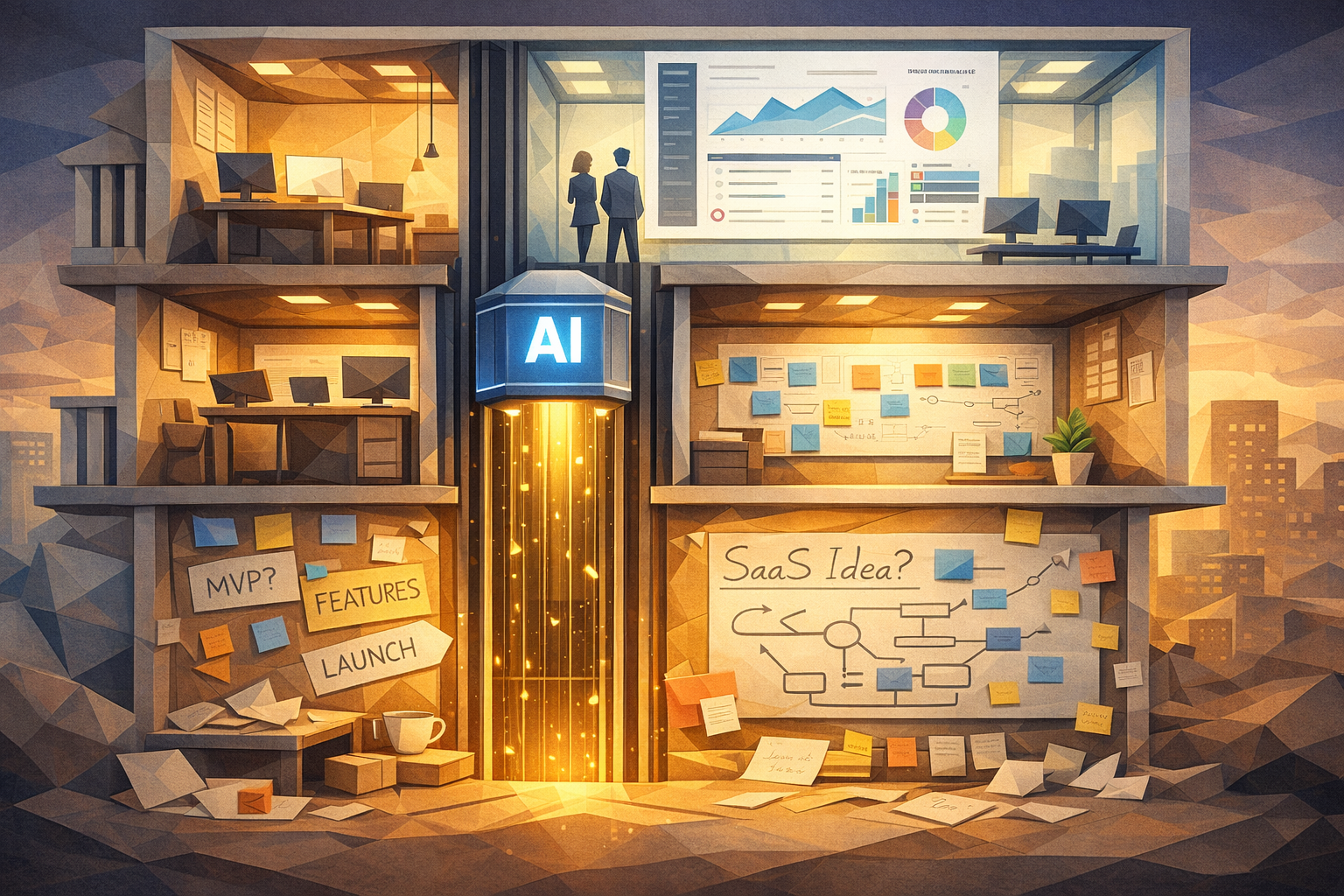A few years ago, building a SaaS product felt rather worse than climbing Everest in sandals. To get your MVP out the door, you would need a team of engineers, rounds of funding, and a six-month to a year launch plan!
But 2025? Oh, that’s a totally different story! Even as a lone founder, you can now go from a napkin sketch to a fully functional product in a single weekend! And more often than not, without writing a single line of code!!
So, what distinguishes SaaS startups in 2025? It isn’t about having the loudest pitch or the most advanced technology. It’s about effectively resolving actual problems. And these four no code platform startups are setting an example for the rest of us to follow!
Storylane
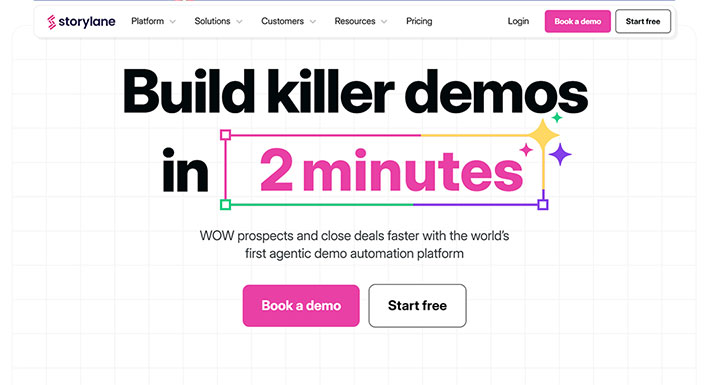
Storylane makes interactive product demos. The kind that lets you click around a software product without actually installing it. It’s drag-and-drop, no code, and surprisingly, it actually works! This isn’t some marketing gimmick either; companies like Upland and Housecall Pro use Storylane to build demos in minutes, and have even seen up to 3× more engagement and 35% higher pipeline conversion as a result.
Storylane is a unique SaaS platform because of its emphasis on growth driven by products. Anyone can register, create a demo, and distribute it without even speaking to a human. How cool is that? The selling is done by the product itself, and it feels more like a preview of the product than an actual pitch. It’s not surprising that more than 2,500 businesses joined this micro SaaS. It’s not flashy, it’s just incredibly useful.
Lovable.dev
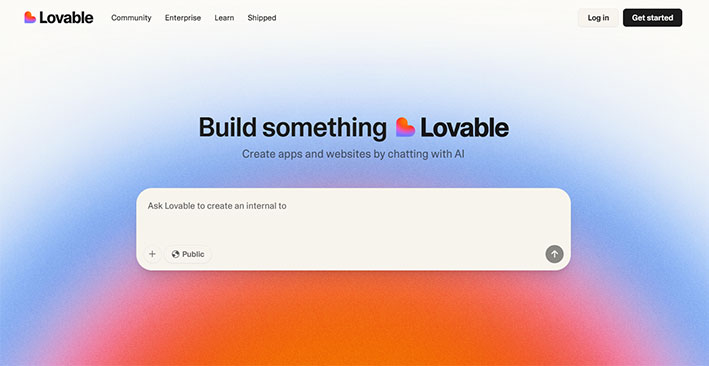
Lovable.dev from Sweden attracted attention with the straightforward promise that it would quickly create a functional full-stack application if you told it what you wanted. Just type and go, no coding, no training wheels.
It created quite the stir on Product Hunt, attracting non-technical founders and product managers who were looking to go from concept to prototype quickly. With the help of investors like Creandum (the same group that backed Spotify), Lovable.dev is establishing itself as a go-to resource for anyone looking to forego the typical startup obstacles and focus solely on building. This AI-driven SaaS solution has no dodgy marketing campaign. Just a simple and quick product.
Tally.so
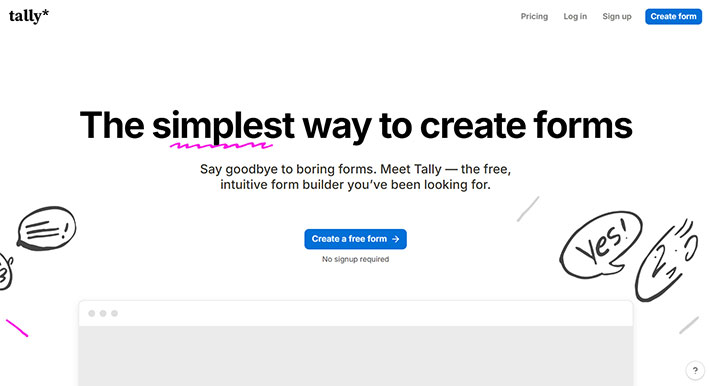
If Google Forms feels clunky and Microsoft Forms feels too corporate, you’re not alone. Tally.so scratched that itch. This privacy-first, Notion-style form builder launched with a freemium business model. In today’s capitalistic world, that was a rather bold move.
But that bold move paid off! Today, Tally boasts 400,000+ users and about $150K in monthly recurring revenue, with just a five-person team. Their secret sauce? Community-led growth, relentless shipping, and a product clean and intuitive enough that users don’t need tutorials. When your users can build a form faster than they can make a cup of tea, you’ve got something special!
DocuSign
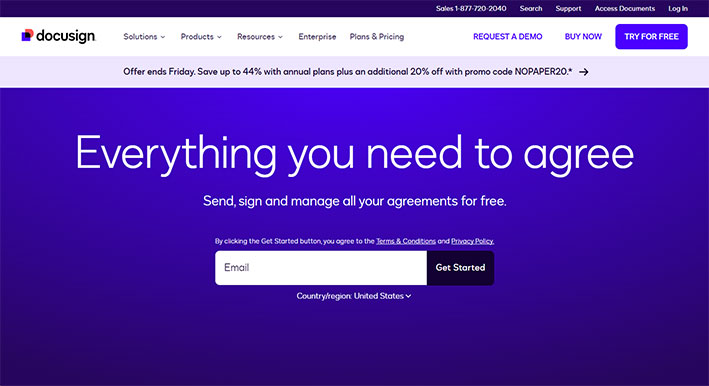
DocuSign is no micro SaaS start up by any means. For many years, it has been perhaps the most well-known brand in e-signatures, some would even go as far as to call it a household name! However, in 2025, it served as a reminder to everyone of its continued relevance and leadership. Even with its fiscal year revenue of $2.98 billion, DocuSign didn’t get complacent! It turned around. Hard!!
The business grew from a signature tool to a comprehensive “Intelligent Agreement Management” platform. This includes advanced compliance, automated analysis, and enterprise-grade contract workflows that are all intended to make B2B paperwork less tedious. Their stock nearly immediately surged 15% after exceeding earnings forecasts in Q4.They’re proof that, with the right pit crew, even big bikes can flick through tight corners.
Key Takeaways
Look, the truth is, the companies above didn’t wait around for perfect conditions. They didn’t wait to “learn to code” or build a 50-page pitch deck. They shipped! Fast! Really fast! They were obsessed over real problems. And whether they were bootstrapped (like Tally), moving at lightning speed (like Lovable), or scaling up into the enterprise (like DocuSign), they all had one thing in common: focus.
If you’re sitting on a product idea of yours and wondering how to build the website for it, that’s not a blocker. It’s an excuse. With tools like JDoodle.ai which let you build a clean, pro-grade web presence without writing a single line of code you can go from idea to launch before most people finish arguing over domain names.
So don’t wait. These four SaaS stars are already running. You’ve got no reason not to join them.
Related Posts
View All Posts »How to Build a Website for a Makeup Artist in 11 Simple Steps
Learn how to build a clean makeup artist website that showcases your portfolio, lists services clearly, and helps clients book you easily, without needing technical skills.
How to Build a Website for a Gardener in 11 Simple Steps
Learn how to create a simple, professional gardening website that attracts local customers, showcases your work, and makes it easy to get enquiries, without needing technical skills.
How to Build Your SaaS MVP with an AI App Builder in 2026
A practical, step by step guide for founders, PMs, marketers, students, and indie hackers to ship a working SaaS MVP using an AI app builder with a built in database, without touching backend code or wrangling classic no code tools.





